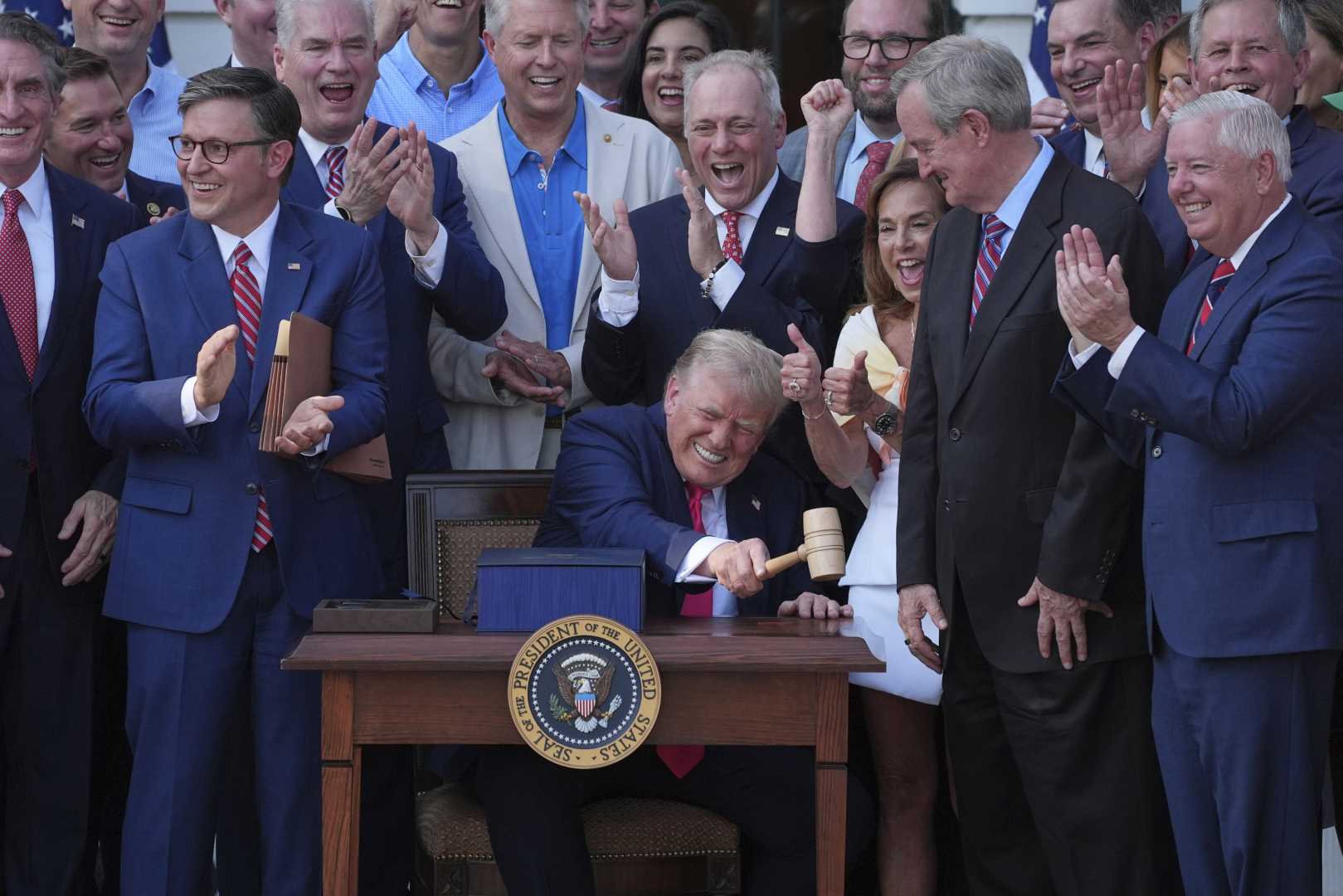Politics
Trump Signs Major Spending Bill on July 4 Amid Controversy

Washington, D.C. — President Donald Trump signed a $3.3 trillion spending and tax bill on July 4, known as the “One Big Beautiful Bill,” during a celebratory event on the South Lawn of the White House. The bill, which passed in the House on July 3 with a narrow vote of 218-214, fulfills many elements of Trump’s domestic policy agenda but comes with significant budgetary implications.
The legislation includes tax cuts and increased funding for defense while making deep cuts to social safety net programs, notably Medicaid. “Our country is stronger, safer, and more prosperous than ever before,” Trump stated at a picnic for military families, emphasizing the significance of the bill.
House Republicans faced intense pressure leading up to the vote, with Trump personally engaging with lawmakers to secure their support. House Speaker Mike Johnson praised the legislation Tuesday evening, asserting it marks a key achievement for the party during Trump’s presidency.
The bill, spanning nearly 1,000 pages, reallocates federal resources away from programs like food aid and clean energy to fund defense and immigration enforcement initiatives. The Congressional Budget Office estimates that these changes will increase the national debt by approximately $3.4 trillion over a decade.
Despite the tight margins, only two Republicans—Thomas Massie of Kentucky and Brian Fitzpatrick of Pennsylvania—voted against the measure. The Democratic Party unanimously opposed the bill, condemning it for its substantial cuts to Medicaid, which they claim will jeopardize health coverage for millions of Americans.
Hakeem Jeffries, House Minority Leader, described the bill as a “disgusting abomination,” highlighting concerns that it would harm vulnerable populations such as children and seniors. He spent nearly nine hours on the House floor arguing against the legislation before the final vote.
The path to passage saw a series of last-minute negotiations, with Republican leaders employing various strategies to win over dissenting members. Several lawmakers who had initially opposed the bill ultimately relented after discussions with Trump and reassurances regarding future legislation to address their concerns.
Trump’s aggressive push for the bill reflects his desire to achieve legislative success ahead of upcoming elections and solidify his agenda within the party. After the signing, he asserted that this action serves as a reclamation of America’s strength and unity.












